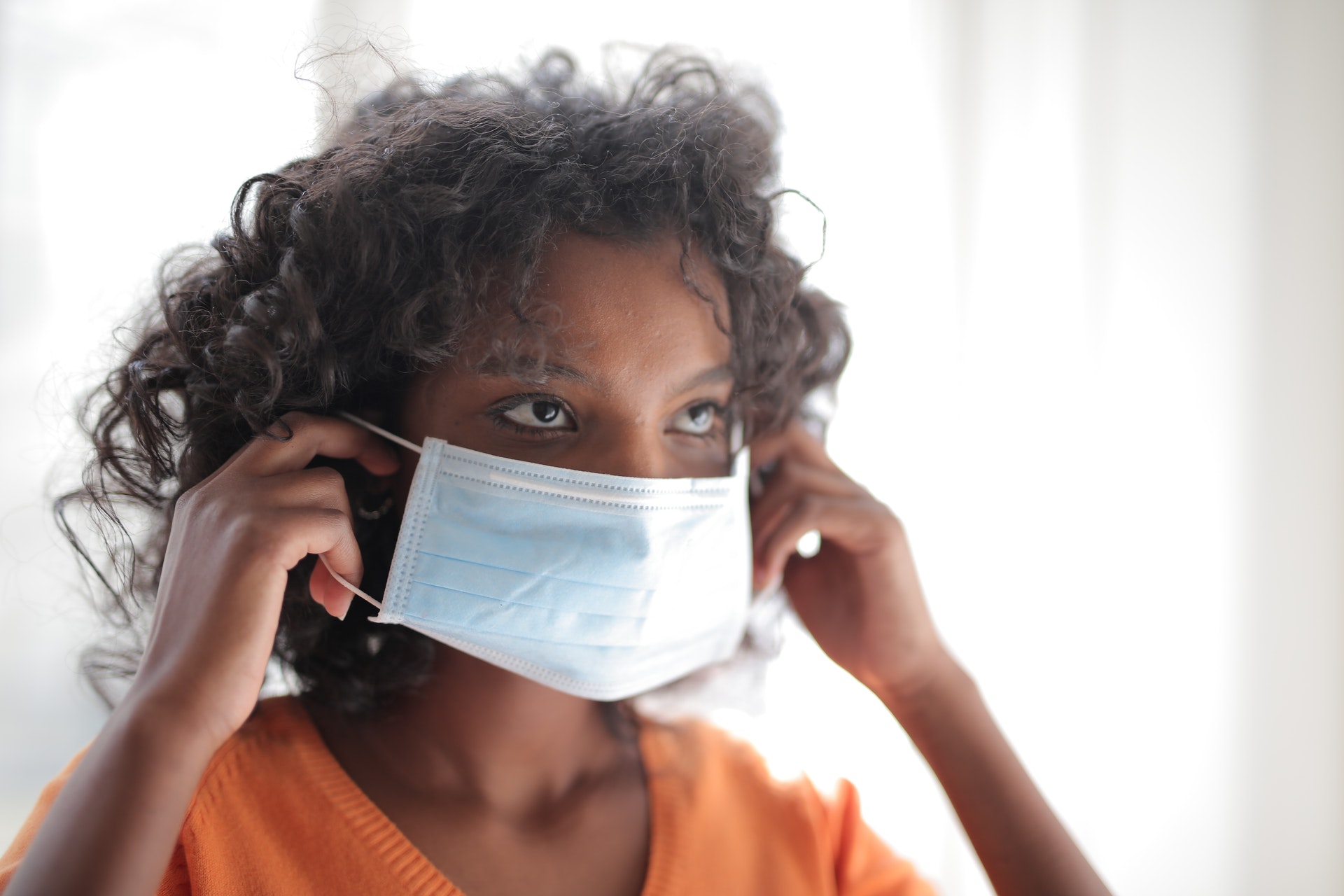
Face coverings have become an essential wardrobe component. Here are some helpful tips on how to comfortably wear your face coverings without compromising on safety.
The elastic ear loops on my face mask irritate my ears. Am I doing something wrong?
Irritated ears are a true annoyance, but there are products and hacks that may help. You can try the “ear saver,” a double-sided clip that’s worn behind the head with four different hook levels. Loop the elastics on the hook that best fits your head to relieve the pressure on your ears. You can also try sewing a pair of buttons onto a headband or baseball cap to use in a similar fashion. Measure the placement of the buttons carefully, placing them at the right spot to hook the elastic loops of your face mask.
I wear eyeglasses, and when I put on a face covering, my breath fogs the lenses. Is there any way to avoid this?
First, try to tighten your covering to prevent air from escaping your mask and fogging up your glasses. Another solution is to place a folded tissue between your mouth and the mask. Make sure the top of your mask is tight and the bottom looser, to help direct your exhaled breath away from your eyes. You can also try a commercial anti-fogging spray or using a thicker fabric for your homemade face covering.
Do I need to wear a face covering every time I leave my house?
The CDC has recommended that all Americans wear face coverings when out in public; however, even in places where face coverings are now law, they are not required to be worn every time people leave their home. In general, face coverings are recommended (or required) in public areas where social distancing is impossible to adhere to at all times. A good rule of thumb is to use common sense for determining when you need to wear a face covering.
What do I need to know about the proper way to wear a mask?
Wearing a face covering the wrong way can be worse than not wearing one at all. A covering can give you a false sense of security, and you will likely allow yourself to get closer to people when you are wearing one, whether by conscious decision or unconscious choice.
The primary purpose of wearing a face mask is to keep viral aerosols from entering and exiting your respiratory pathway through your nose and mouth. Consequently, it is crucial that your mask covers your nostrils and your entire mouth at all times. A tight fit that allows for breathing is equally important.
Another common mistake made by mask-wearers is the improper removal of the masks. The CDC advises people not to touch their eyes, nose and mouth when taking off a face covering. The organization also urges people to wash their hands immediately after removing a mask.
Stay safe everyone!